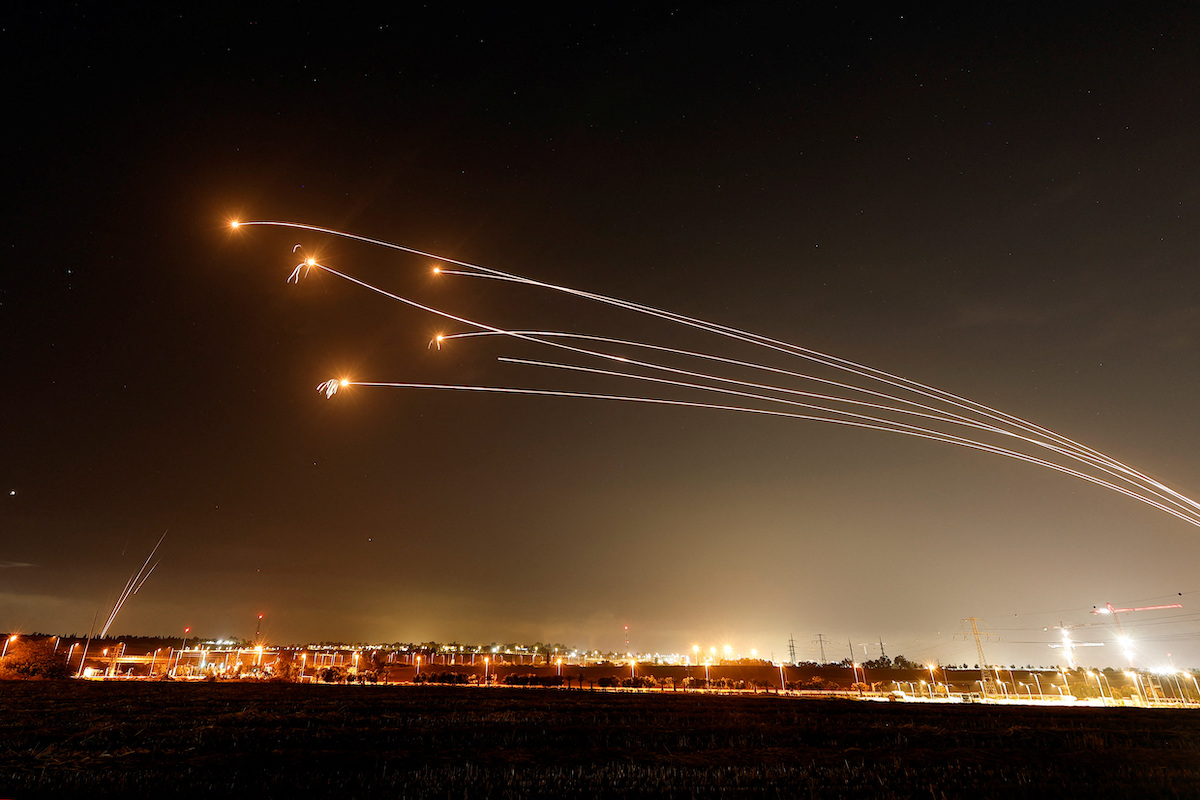As ceasefire with Palestinian Islamic Jihad appears to hold, IDF removes restrictions for southern Israel
Israel thanks Egypt for its role in negotiating the truce

Despite a volley of rockets shortly after the 10 p.m. ceasefire was due to start, the ceasefire appears to be holding as of Sunday morning.
The Egyptian-negotiated ceasefire ended five days of intense conflict between Israel and Palestinian Islamic Jihad (PIJ) that erupted after Israel carried out a targeted strike on Tuesday night, killing three PIJ leaders.
While the IDF has not released the total figures since the start of Operation Shield and Arrow, the previously released figures showed that at least 1,234 projectiles were launched from Gaza since Tuesday night. Of those, 976 crossed the border into Israel, while 221 fell back into Gaza. At least four Gazans were killed by falling rockets.
The IDF also said that its air defense systems – both Iron Dome and David’s Sling – intercepted 373 of the rockets, a 91% interception rate for projectiles heading toward populated areas.

Israel's strike on the PIJ commanders came after the terror launched over 100 rockets at Israel the previous week.
Last night, Israeli Prime Minister Benjamin Netanyahu’s office released a statement thanking Egyptian President Abdel Fattah el-Sisi and expressing Israel’s gratitude for Egypt’s “intensive efforts to secure a ceasefire.”
Israeli National Security Council (NSC) Director Tzachi Hanegbi said Israel’s acceptance of the ceasefire meant that “quiet will be met with quiet,” but added that, if attacked, Israel would “do everything that it needs to in order to defend itself.”
On Saturday night, about 10 minutes after the ceasefire was to take effect, several rockets were launched from Gaza towards Israel. The Israel Defense Forces responded with airstrikes, hitting two concealed rocket launchers.
About one hour later, two more rockets were launched towards Israel and the Israel Air Force again responded by striking targets associated with the launches.
Since that time, no rockets have been launched towards Israel.
Earlier this morning, the IDF Home Front Command announced a gradual relaxation of restrictions in Israel’s south. Workplaces with shelters were allowed to open, and special education schools which could hold classes within shelters were allowed to resume activities.
PIJ leaders said Israel agreed to stop targeted killings of its leaders as part of the ceasefire, however both Israel and Egypt denied that claim.
An Egyptian official said that Israel was “only willing to cease firing if the other side does too. No strings attached.”
Palestinian and Arab media published a text from Egypt about the ceasefire announcement, which spoke of an end to targeting civilians and demolishing homes as part of the agreement.
Egypt has traditionally served as a negotiator between Israel and Palestinian terror groups, as groups like Hamas and PIJ do not officially recognize the State of Israel.
During the five days of rocket barrage, two people were killed in Israel and at least 69 were treated for injuries related to the rocket attacks. One of those killed in Israel was a worker from Gaza, Abdullah Abu Jaba, a 35-year-old father of six.
The first death was an Israeli woman, 80-year-old Inga Avramyan, killed while trying to get her disabled husband to a shelter. The IDF said that a malfunction with the Iron Dome system allowed the rocket to pass through.
The exact number of Gazans killed by falling rockets is difficult to report, as Hamas’ Health Ministry usually attributes their deaths to Israeli “strikes.”

The All Israel News Staff is a team of journalists in Israel.













